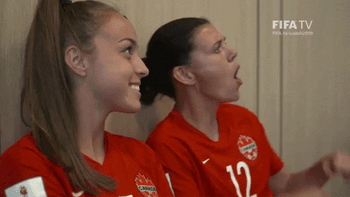The global impact of the FIFA Women's World Cup

The GIST: Only four countries have ever won the FIFA Women’s World Cup (WWC) — the U.S., Norway, Germany, and Japan — but none of them are left standing, meaning this year’s winner is guaranteed to be a first-timer. As the semifinals of the world’s biggest tournament wrap up, we’re looking at its global impact on the women’s game. Who run the world?
The metrics: This year’s WWC seems to set a new attendance or viewership record daily. Most recently, the Matildas’ quarter-final win over France peaked at 7.2M viewers, becoming the most-watched Australian TV program in over 20 years. China set the viewership match record for this tourney when 53.9M fans tuned in for the Steel Roses’ group stage loss to England.
- U.S. fans also put up some impressive numbers despite the unfavorable match times, but this was notably the first WWC in a timezone catered to global fans outside of North America and Europe.
- As far as attendance goes, Aussies and New Zealanders both set records early on, ultimately shattering the tournament record by the Round of 16. And while these numbers are impressive, the true effect is reflected by the changes they inspire.
Growth in Asia: On Monday, the Asian Football Confederation (AFC) announced the creation of a Women’s Champions League next season. All eligible clubs from the AFC’s member associations will receive invitations to participate, and details of a financial distribution model for the competition will be announced in the future.
- The news follows the success of two pilot AFC Women’s Club Championships in 2021 and 2022, with the final pilot set to take place later this year.
The DAZN Group: Sports entertainment platform DAZN acquired ATA Football yesterday, a media company that provides women’s soccer content and connects fans to players. DAZN said the acquisition will help the brand achieve its goal of being the “home of women’s football.” BRB, moving in.
Zooming out: The influx of companies and brands investing at the grassroots level promises higher returns in the future, and these seemingly real-time effects of the 2023 WWC are inspiring. This year’s event, along with recent success of other international tourneys, shows that women’s soccer growth isn’t slowing down anytime soon. Can’t stop them now.
Enjoying this article? Want more?

Sign up for The GIST and receive the latest women's sports business news straight to your inbox three times a week


